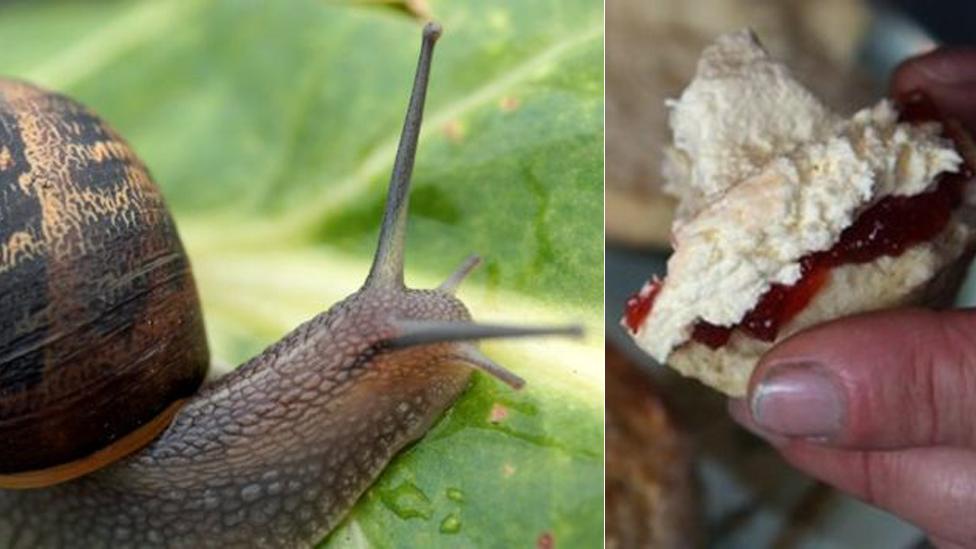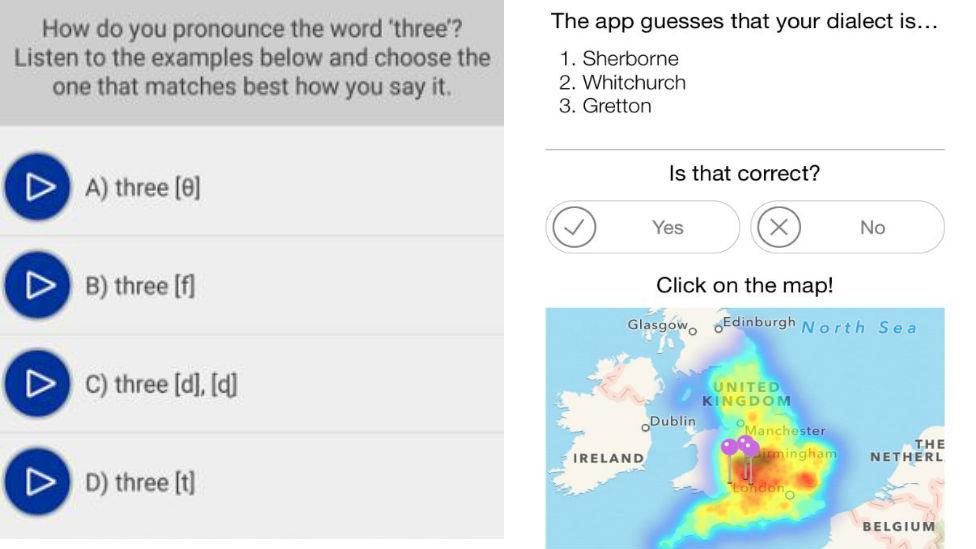Scones and snails help app to map accents and dialects
- Published

The app asks users how they pronounce certain words or which word they use for a certain thing
The way people pronounce the names of baked goods could help academics find out how regional accents have changed.
A new app, English Dialects, developed at universities in Cambridge, Zurich and Bern, asks users how they pronounce words including "scone".
Choices are given for another 25 words, or word meanings, after which the app guesses where the user might be from.
When the team launched a similar app for German speakers there were more than one million hits in four days.
The aim of the free app is to track how dialects have evolved over a number of decades.
It compares today's pronunciation with dialects studied more than 50 years ago in a decade-long field study of accents in 313 locations, called the Survey of English Dialects.
'Splinter' or 'spelk'
The app was developed by Dr Adrian Leemann, a linguistics researcher at Cambridge University, together with five colleagues from Bern University and Zurich University.

The app uses 26 questions, some with recorded answers, to guess which part of the country you are from
"We want to document how English dialects have changed, spread or levelled out," he said.
"English accents and dialects are likely to have changed over the past decades. This may be due to geographical and social mobility, the spread of the mass media and other factors.
"If the app guesses where you are from correctly, then the accent or dialect of your region has not changed much in the last century.
"If the app does not guess correctly, it is probably because the dialect spoken in your region has changed quite a lot over time."

How do you pronounce...?

Hands - do you pronounce the "h"?
Scone - when you tuck into one does it rhyme with "gone" or "cone"?
Butter - how do you pronounce the letter "u" when you spread it on your scone?
The snow is thawing - when you say that word, do you put an "r" in there?
Try a bit of this - do you pronounce the "t" at the end of the word "bit", or drop it?

Its 26 questions, many with voice recordings, ask users how they pronounce a certain word or which word they use for a certain thing.
There are, for example, numerous different words to describe a tiny piece of wood that gets stuck under your finger nail. You might call it a splinter. You might call it a spelk or a spill.
Prof David Britain, a dialectologist from the University of Bern in Switzerland, said the app might also shed light on the two pronunciations of the word "scone".
"Everyone has strong views about the pronunciation of this word, but, perhaps surprisingly, we know rather little about who uses which pronunciation and where."
The app also allows users to make their own recordings which the developers will use for further research.

The app is available to download via the iOS App Store, external and Google Play, external.